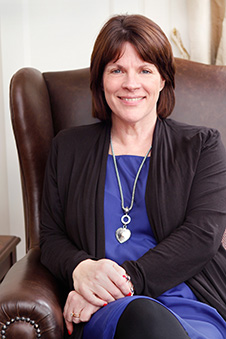 Friday 15 February 2019 3:04pm
Friday 15 February 2019 3:04pm
Vice-Chancellor Professor Harlene Hayne
As the University of Otago welcomes students back for the 2019 academic year, Vice-Chancellor Professor Harlene Hayne has some advice to ensure their experiences are both fun and safe.
“Students come to Otago from across New Zealand and the world, to receive not only a world-class education, but to have a safe and enjoyable student experience,” she says.
She hopes students excel academically, make new friends, and take part in the many cultural activities and sports pursuits on offer, and encourages them to respect the community, be considerate, and take care of each other along the way.
“Look after yourself and look after your friends. Be a good bystander. Call out bad behaviour when you see it. Call out people who put themselves or others or our environment at risk. Treat each other and our community with respect.”
The University of Otago provides outstanding pastoral care to all students, both in and out of the classroom, and has common-sense rules covering general life on campus, as well as in the Code of Student Conduct.
For those situations when something does go wrong, there are student services available to assist including Campus Watch, Student Health, and sexual violence support and prevention centre Te Whare Tāwharau.
Key safety and support messages:
Campus Watch
Campus Watch, which works 24/7 in the North Dunedin community, offers pastoral care to the University community. This includes a free walk home service, a Safety Patrol, and assistance as and when required 365 days of the year.
The Safety Patrol covers the student flatting area, ensuring the streets and house frontages are clean and tidy, proactively discouraging criminals from frequenting the area, and ensuring student behaviour is kept to a reasonable level.
The University also has its own Campus Cop who acts as a vital link between the Police, University students/staff and the community.
Snr Constable Woodhouse offers advice on safety and security, as well as taking complaints regarding thefts, lost property, etc, and works closely with Proctor Dave Scott.
Code of Student Conduct
To maximise the safety of our community, the University has a Code of Student Conduct.
The code allows the University to proactively address student behaviour, without involving the court system.
The common-sense rules that form the Code of Student Conduct are distributed to every incoming student, and are available for review on the University's website. Breaching these rules may result in consequences including fines or community work, or exclusion from the University.
Flat security
North Dunedin is often targeted by thieves looking for flats with relaxed security. Deterring them can be as simple as making sure the last person to leave the house, locks the door.
Campus Watch has free UV pens available to mark valuables if required.
Lime scooters
The Dunedin campus is considered a pedestrian precinct with users of e-scooters, skate-boards and bikes expected to dismount and walk. Signs are posted at entrance points to campus reminding users of the need to dismount.
Additionally, the campus will be geo-fenced as a “no park” zone for Lime scooters. Acceptable parking hotspots will be designated on the campus perimeter.
The University strongly recommends e-scooter users wear helmets and is making them available to borrow from a range of locations across campus, including in the residential colleges. University branded helmets will also be available to purchase from campus retail shops.
For everyone's safety, scooters will be locked out between 12–5am every night. Keep an eye out for Lime's Operation Team, which will be out and about in North Dunedin, and their aim is to ensure students are using scooters safety and respecting the ride.
Student Health
Student Health provides a comprehensive range of primary health care services including doctor, nurse, mental health and well-being, and psychiatry appointments.
It works within the University, but is also independent so confidentiality is assured.
The University strongly recommends all students, particularly those living in residential colleges, be vaccinated against meningococcal disease. Vaccinations are available at Student Health.
Te Whare Tāwharau
Te Whare Tāwharau is a sexual violence support and prevention centre for the University student community. It provides support, advocacy, education and research related to sexual violence on campus.
A walk-in centre is available for any student impacted by sexual violence. The centre is staffed with trained volunteers who will listen, and who can provide information and referrals for additional support.
As well as conducting workshops in residential colleges, Te Whare Tāwharau also offers training for on how to handle issues related to sexual violence.
The centre works in collaboration with other relevant services on campus including Student Health, Disability Information and Support, University Volunteering and the Proctor's office.
For more information, please contact:
Joanne Galer
Team Leader Media Engagement
University of Otago
Mob +64 21 279 8263
Email joanne.galer@otago.ac.nz
FIND an Otago Expert
Use our Media Expertise Database to find an Otago researcher for media comment.
